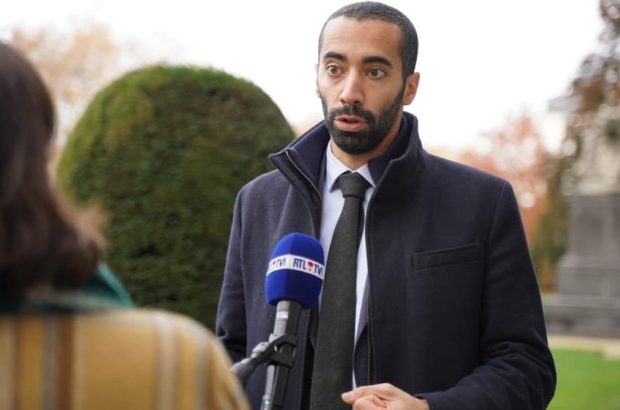- Daily & Weekly newsletters
- Buy & download The Bulletin
- Comment on our articles
"Historic expansion": Belgium builds four new centres for deportation of migrants
The Belgian government has approved the construction of four new centres to handle the deportation of illegal residents in the country, according to a press release from state secretary for asylum and migration Sammy Mahdi.
“This decision is a real milestone. We are creating more return capacity than ever and can make a giant leap forward in our country's return policy,” Mahdi said in the statement.
Three of the centres are detention facilities meant to hold illegal residents until deportation, and the fourth is a departure centre for forced returns.
Belgium currently has six centres with a maximum capacity of 751 places, which will increase to 1,145 with the construction of the four new ones. The three detention facilities will be built in Zandvliet, Jumet and Jabbeke, one of which replaces a centre in Bruges.
The fourth centre – the departure one – will be built in Steenokkerzeel near Zaventem airport, and is intended for the short stay of people who are detained soon after arriving in Belgium, before being quickly returned to their country of origin.
Mahdi says the creation of new return centres is the missing link in his “proactive return plan aimed at improving the return of persons with unlawful residence.”
The federal government immediately approved the public contract for the centres’ development, “in order to not lose any time.”
A priority for illegal residents who pose danger to public order
The so-called “closed return centres” will be used as a priority for the deportation of illegal residents who Belgium determines pose a danger to public order or cause nuisance.
Over the past five years, there have been on average more than 30,000 interceptions of undocumented foreigners by police in Belgium each year.
“Often people with illegal residence come into contact with police when they disturb public order or cause nuisance. Especially in our major cities, this problem is very visible,” Mahdi said.
“Some of these intercepted persons qualify for forced removal because of public order facts, nuisance or because they simply do not want to return voluntarily. We also want to forcibly remove even more foreigners who are in our prisons. This will require the necessary capacity in our closed return centres.”
Changes to deportation notice procedures
Approximately 24,000 people receive an order to leave Belgium each year, which comes in the form of a letter.
Now, those who receive a letter will also be followed up with on a case-by-case basis. People without legal residence will be given the chance to meet with return counsellors located in every province in order to discuss legal ways to remain in the country, a strategy for voluntary departure or the risks of forced return.
Despite the pandemic and the many travel restrictions, the Immigration Department says it succeeded in forcibly removing almost 2,000 people last year, including 1,299 people with a criminal record in Belgium.
With additional places, Mahdi hopes the number of forced removals can be structurally increased, and that humane and safe conditions for the deportee can be ensured.
“Staying in our country illegally is never a good option– not for our society, not for the person in question,” Madhi said.
“In the past, people who received an order to leave the territory were left to their own devices. With our aggressive return policy, we will now follow up on anyone who is told they must leave the country from day one. This always involves looking at various options, but for some, forced return through a closed return centre is the only remaining option.”
Member of parliament Theo Francken (N-VA) called the news a “heavenly announcement,” saying that the policy isn’t new – the government promised to add centres three years ago, but the process was delayed.

















